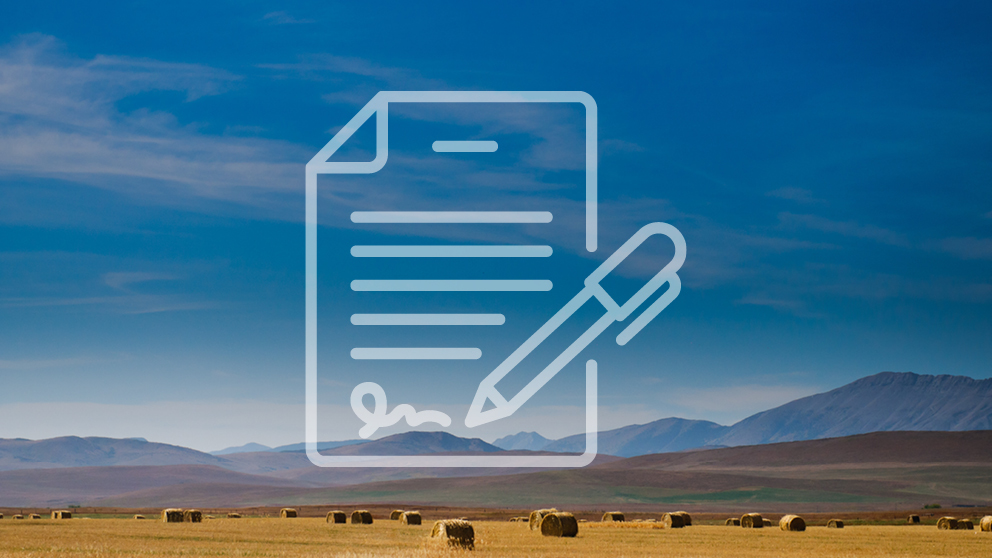3 questions to ask your kids about your will

Do you have a will for your farm business? Have you consulted with your descendants about the contents?*
Could you, based on your current will, divide assets among your heirs?
An up-to-date will is an important farm management tool. It can go a long way to smooth farm operations immediately after your death while capturing your wishes and reflecting the complexities and nuances of your farm. It can also represent the wishes of your descendants and their future involvement — or non-involvement — in the farm.
To ensure heirs are represented and to solidify the legacy of the family farm, there are some essential conversations to have with your family as you are creating or updating your will.
Here are three questions to ask your heirs to begin the conversation about your will:
1. What are the expectations you have regarding your inheritance?
Asking your heirs for their inheritance expectations doesn’t mean you have to give it to them. It’s just asking for their thoughts. Don’t consider their input as a demand. Their thoughts don’t change the power dynamic in a family.
“This is not giving your children or heirs authority over your will, but caring to hear their perspective,” says Patti Durand, agriculture transition specialist. Some heirs are ready to answer the question about expected inheritance, while others haven’t even thought about the question.
“By opening that door of conversation, my hope is that the heirs step into the parents’ shoes and respect the complexity of the decision,” Durand says.
Parents may merely confirm or deny their heirs’ thoughts and whether their heir’s expectations are out of line, too modest or somewhere in between.
“It's not intended to be triggering, but rather opening a collaborative discussion about a complex thing in which there's no obvious answer, and it changes over time,” Durand says.
2. Are there specific items meaningful to you that you wish to inherit?
Leverage the value of technology with this question.
By sharing this question via email before having an in-person conversation with each heir, they can consider and reflect on what matters to them. This approach also helps with instances of a single, non-replaceable item desired by multiple heirs.
Durand says being the first to ask the question puts you ahead of the discussion. Be frank and direct and say, “We all know that you guys really want this, so we need to talk about it.”
Follow that statement with another direct comment: “We’re actually going to get you guys to come up with the solution because we're not going to be there.”
It’s a powerful statement.
“The respect and honour frequently held for parents, often goes away when they're gone,” Durand says.
If you suspect the discussion among heirs for that specific treasured item will get messy, enlist the help of a trusted advisor.
“You know your children best. If you know this will go sideways, you’ll want to have a third party there,” Durand says.
She adds that beginning with one-on-one conversations between a parent and child is preferred to a large meeting with multiple interpersonal dynamics at play. It provides space for each heir to voice their perspective.
3. Farm assets such as land and equipment are valuable but not cash. How do you feel about your sibling who will continue to farm, buying or inheriting these assets?
These assets are seldom just given away; these are tools of the trade; without them, farms can’t operate.
Typically, in farm succession, these assets are passed to the heir, then used to farm, which earns income and helps support the retiring parents. Durand says the asset purchases fund at least part of the parents’ retirement in most farm transitions.
“But do the non-farming heirs understand this transaction?” asks Durand, or will the matter cause friction after the parents’ death?
Speak to their heirs and have a family discussion on the topic, considering the matter from the point of view of all involved before making any decisions. Access to the farm assets could be via rent, ownership or a combination of approaches.
After the questions
After consultation and discussion with heirs, parents remain the ultimate decision-makers and authors of their wills.
Durand asks farmers to consider whether they could, based on how their will is written right now, divide assets among their heirs.
While that answer is varied and layered, it should prompt immediate consideration. Generic wills typically don’t respect how complex today’s farms are. Speaking to family, and having open and honest discussions, no matter how challenging that may be, is worthwhile for the farm’s future success – and even family relationships.
*When you’re ready to write your will, consult a professional for more advice.
Article by: Trevor Bacque

A will is an important part of protecting your family’s future and the future of your operation. Learn the components of a will, how to choose an executor (or liquidator), and what information you should prepare for your professional advisors.

